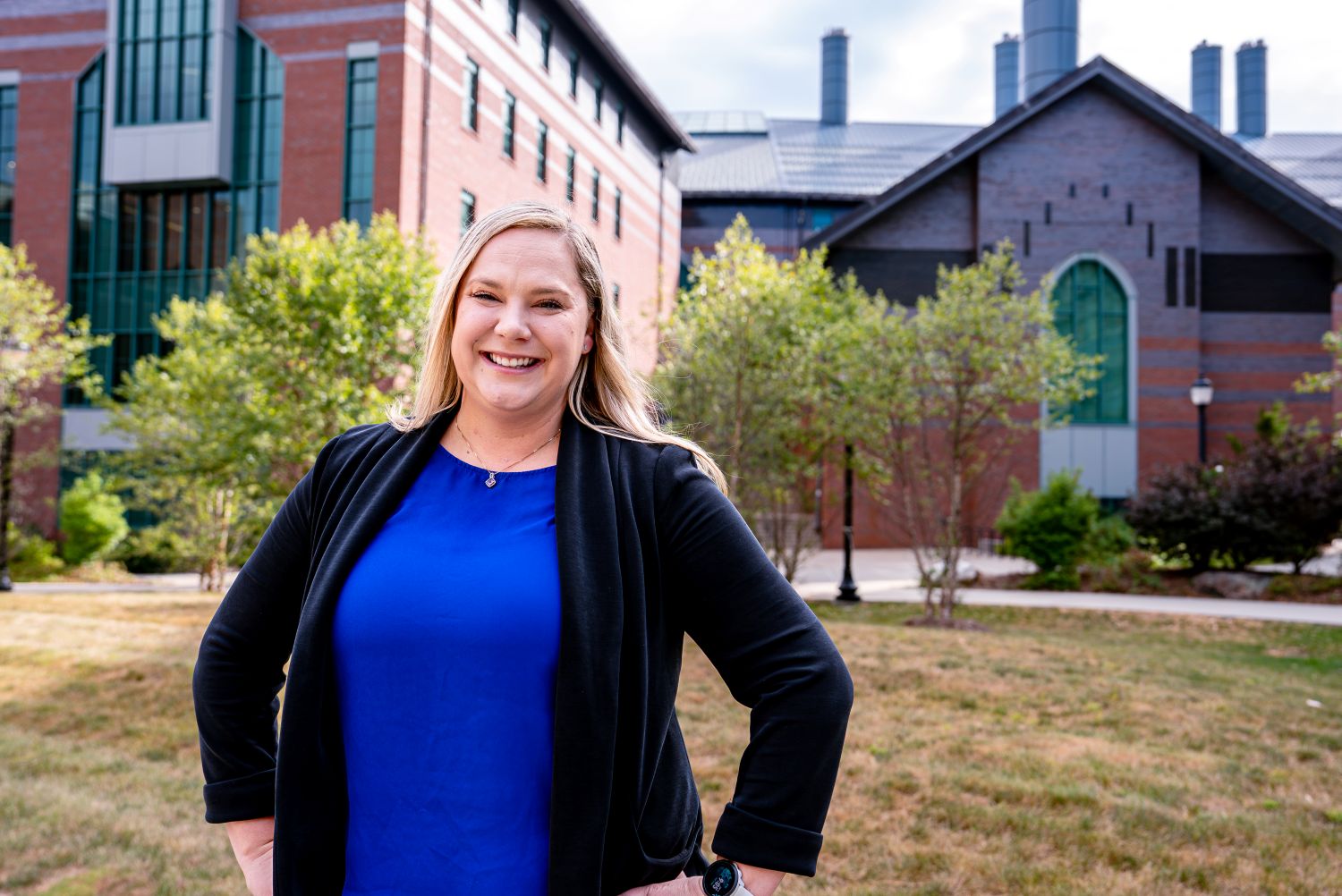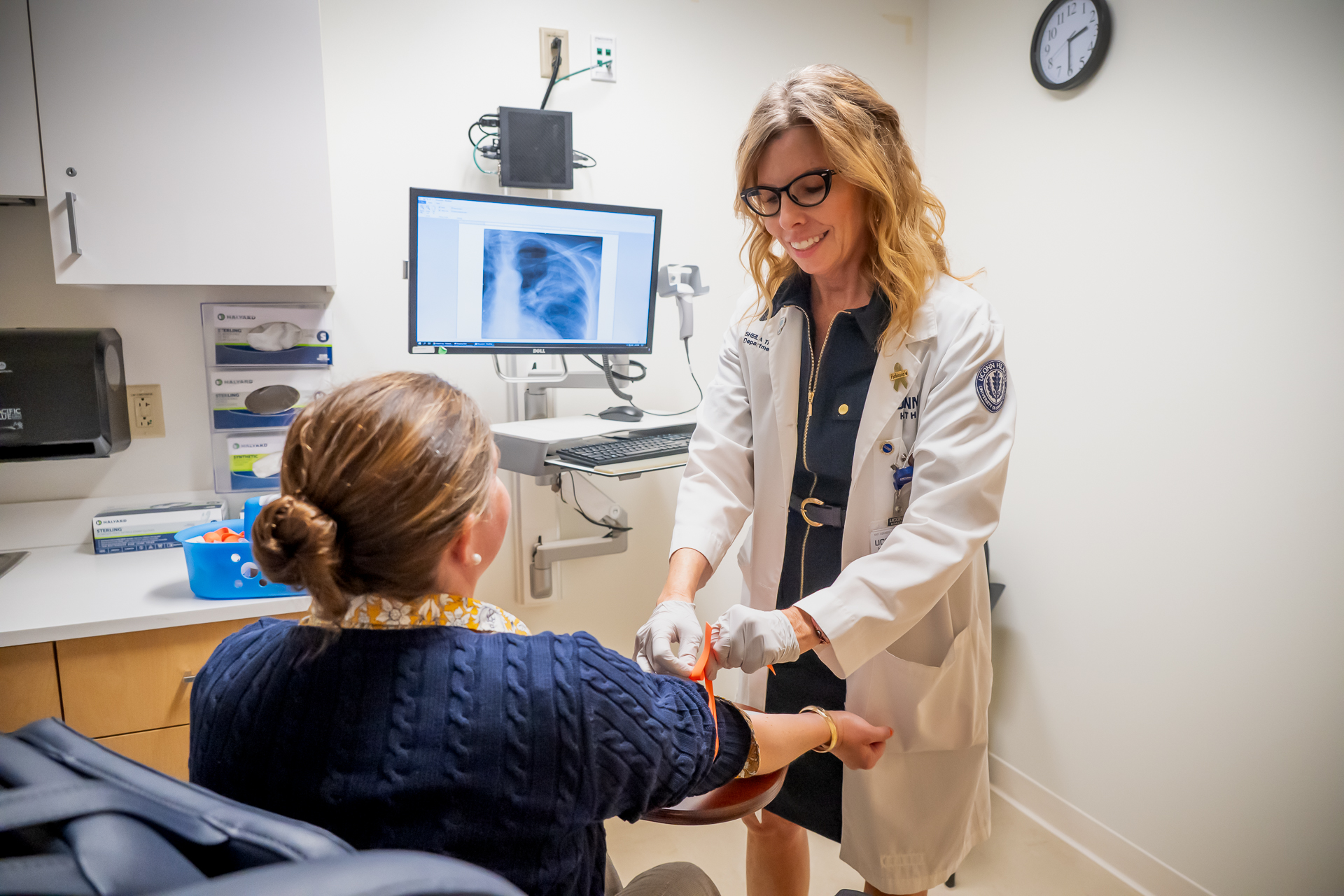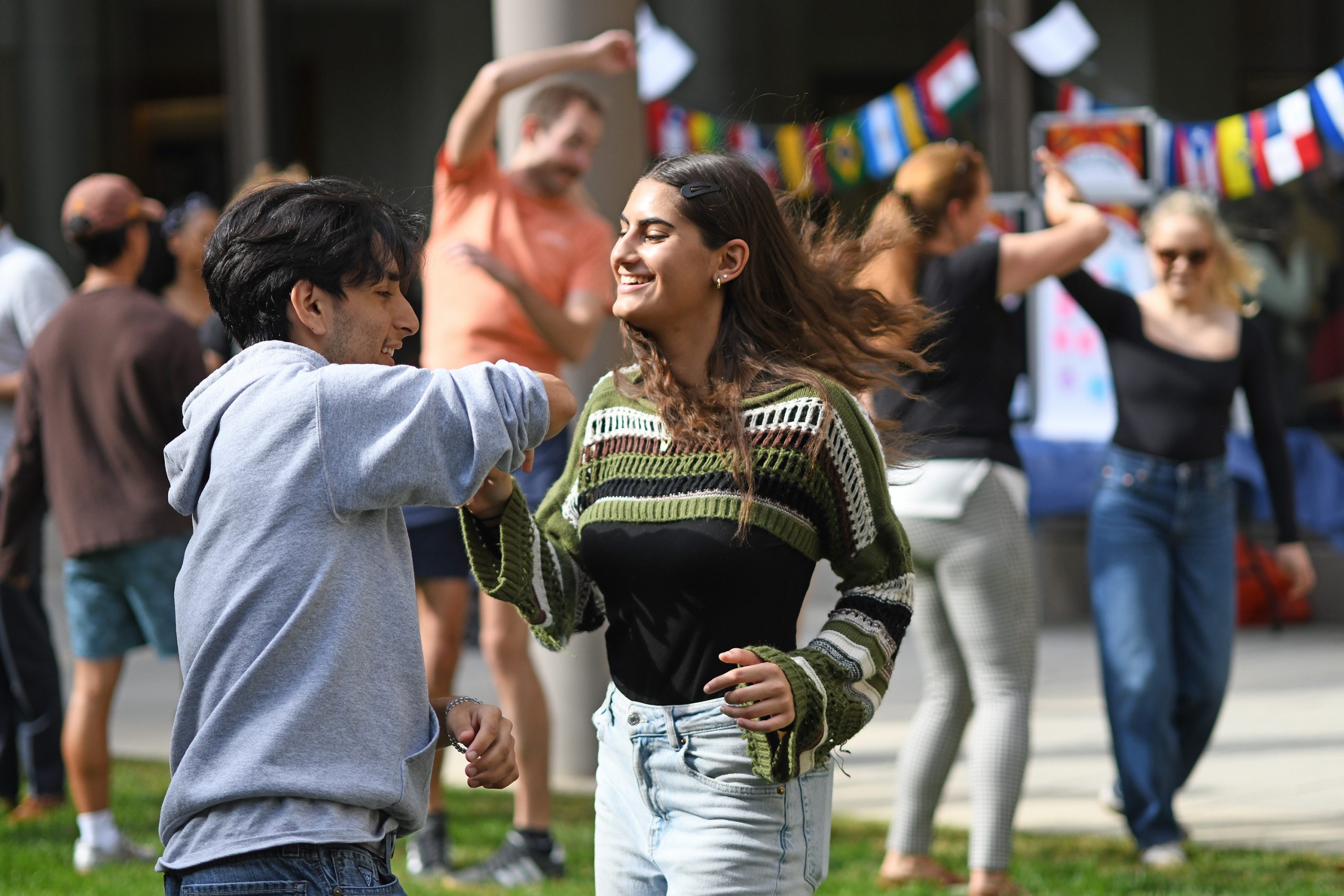CAHNR Alum Ashley Kalinauskas Helps Pets Fight Cancer
Ashley Kalinauskas ’12 (CAHNR) has helped thousands of animals fight cancer.
Kalinauskas is the CEO of Torigen Pharmaceuticals, a company that uses a novel cancer vaccine to help treat pets and other animals with cancer. Kalinauskas developed the vaccine with her master’s advisor at the University of Notre Dame, Dr. Mark Suckow.
Even before she came to UConn, Kalinauskas had been interested in virology, where she majored in pathobiology and veterinary science (PVS).
“I read a lot of books on viruses,” Kalinauskas says. “I think viruses are super interesting. They’re non-living but what they’re able to do in terms of forcing disease is just wild.”
Kalinauskas worked on viral vaccine development in Professor Antonio Garmendia’s lab at UConn. During her master’s degree at Notre Dame, she worked on cancer vaccines.
“I switched from viral vaccines to cancer vaccines,” Kalinauskas says. “But the underlying mechanisms are still pretty similar.”
During graduate school, Kalinauskas developed a business plan to commercialize a therapeutic vaccine that uses a patient’s own tumor cells to teach the body how to fight off new tumors by boosting immune response.
The proteins on the surface of cancer cells are distinct from healthy cells. This serves as a “fingerprint” that Kalinauskas and her team record. They then use this print to develop a personalized vaccine so that the body can identify cells with that fingerprint as cancerous. The vaccine helps the body attack cells left behind after surgery, or if the cancer has moved elsewhere in the body. It also allows the body to identify and destroy cancer cells if they begin to regrow.
“It tells the body that if I see this cell again, we need to mark this for destruction and not let it live,” Kalinauskas says.
Kalinauskas quickly realized that developing this technology for human health applications would take years given the regulatory frameworks in place. The process to get vaccines for animals to market, however, is much quicker. This led Kalinauskas to decide to develop these vaccines as a treatment for cancers in animals rather than humans.
Cancer in pets is a major problem as approximately half of all dogs over the age of 10 and a third of cats in the U.S. die from cancer.
Kalinauskas says the way her education in the College of Agriculture, Health and Natural Resources (CAHNR) emphasized the connections between human and animal help prepared her to pivot her technology.
“If I had only taken human health classes, maybe I wouldn’t have that understanding that our immune systems are really similar across species and that there is a huge problem when it comes to cancer in our pets,” Kalinauskas says.
Kalinauskas says she is still in touch and works with several of her classmates who went on to become veterinarians.
“UConn was super helpful in forming some of those connections,” Kalinauskas says.
Torigen joined the Technology Incubation Program at UConn in 2017. The company graduated from the program in 2022 and has established its own facility in Farmington.
The company provides veterinarians anywhere in the U.S. with a kit that they can use to extract a sample from the tumor. This sample is then used to quickly create the vaccine in their clinic that they can then administer the same day.
Torigen also has a diagnostic laboratory that conducts cancer screenings. They provide oncology consulting as well.
“I love talking to the veterinarians and the owners we’ve helped,” Kalinauskas says. “That’s the part that makes me so happy – to know that we’re making a difference and doing a little bit of good in the world.”
Because the immune system is very similar across species, Torgien has seen a menagerie of patients across the thousands of animals they have treated so far. The vaccine has mostly been used in pets like cats, dogs, and horses. But Torigen has also been contacted for more exotic cases at zoos and aquariums including lions, tigers, bears, lemurs, dolphins and even a stingray.
Kalinauskas and her team have conducted clinical trials of the vaccine’s efficacy, finding it significantly improves the lifespan of animals with specific aggressive solid-based tumors that can be surgically excised.
“We’re moving the needle in the right direction for a subset of that population,” Kalinauskas says. “That’s what immunotherapy is able to do. It’s not going to be a slam dunk for every single patient. But for some patients you can absolutely stimulate an immune response that is protective allowing them to live longer after a serious diagnosis.”
Torigen’s products and services are currently only available in the U.S., but they are working on rolling the product out globally to reach even more animals.
“That’s really what’s next – how can we expand this and better get the word out that this is an option for veterinaries and for owners to consider,” Kalinauskas says. “I want every tumor to come to Torigen.”
This work relates to CAHNR’s Strategic Vision area focused on Enhancing Health and Well-Being Locally, Nationally, and Globally.
Follow UConn CAHNR on social media
Latest UConn Today
- Clinical Research Center Makes a Real Difference in Patients’ Lives (and Clinical Trials)UConn School of Medicine is home to the tireless teamwork of the Clinical Research Center supporting over 80 clinical trials.
- National Hispanic Heritage Month Celebrated at Viva la Salsa!Students, faculty, and staff participated in a salsa dance class, sampled Hispanic snacks, and made cultural connections
- New UConn School of Medicine Faculty Appointments for 2025The Academic Affairs Subcommittee of the Board of Directors at UConn Health announced this August the new senior rank appointments for UConn School of Medicine faculty.
- New Faculty Enrich UConn Law with Real-World Expertise and Academic ExcellenceUConn Law adds a permanent professor of law, specializing in tax and inequities, and a visiting professor from practice, who will instruct on AI ethics and cybersecurity law.
- What Even Is Social Media, Tho? Adults and Teens Often Differ, UConn Researchers FindNo cap: Differences in understanding the basics can lead to bad policy outcomes fr fr
- Wolff Finalist Startup ‘Orbit Crates’ Offers Subscription Toy Rentals for KidsCompany offers 500 toys from classics to Bluey to Disney Princesses













